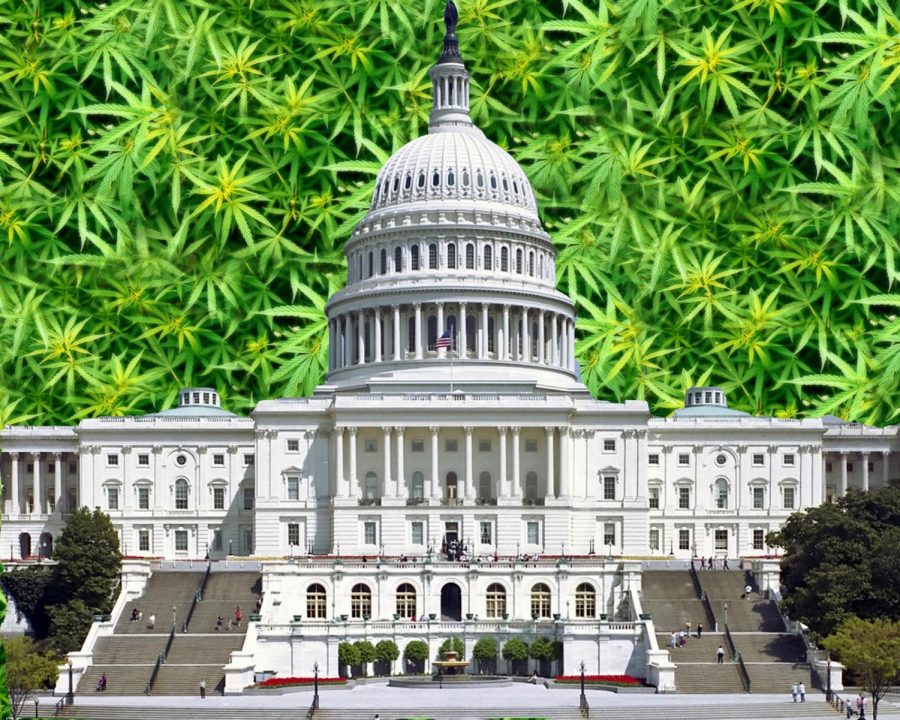Congress urges DEA to start processing applications for medical cannabis research
Former Attorney General Jeff Sessions is believed to have blocked numerous applications for medical cannabis research
Almost 30 members of the House of Representatives have signed their name in ink at the closing of a bipartisan letter curated by Congress.
The letter urges the Department of Justice and the Drug Enforcement Administration (DEA) to review medical cannabis research applications, which seem to have been left on the back-burner for quite some time now.
“One who wishes to engage in this research must at the very least work with three separate federal entities—the National Institute on Drug Abuse (NIDA), DEA, and FDA. Approval is required by the FDA, which includes a site inspection, and FDA,” reads the letter, which outlines how the research process is currently “long and arduous” due to cannabis’ Schedule 1 classification.
The bipartisan letter also discusses how 33 States throughout the United States have already acknowledged the medical benefits of cannabis.
Cannabis’ taboo reputation could be cleaned up if medical research applications are approved
If the DEA starts reviewing applications for medical cannabis research, fresh scientific research could be used as evidence to help dissolve the negative stigma surrounding cannabis. Currently, research on the plant is limited. However, an ever-growing field of research points to the plant’s potential as a therapeutic aid for patients with cancer, epilepsy, multiple sclerosis, Alzheimer’s and Parkinson’s Disease, among many others.
Obtaining a license to conduct medical cannabis research provides researchers with an opportunity to expose the plant’s medicinal potential. Proof of this kind will likely alter the government’s prohibitionist stance on pot. Add to this the fact that the next president of the United States could have just signed the bipartisan letter and the likelihood of it being taken seriously by federal lawmakers looks pretty good.
A handful of Democrats hoping to run for president in the 59th quadrennial U.S. presidential election in November of next year have joined the group of voices urging for the DEA to review cannabis research applications, of which 26 are awaiting review.
Reportedly, 26 medical cannabis research applications are awaiting review

The DEA’s Acting Administrator Uttam Dhillon and Attorney General William Barr – who previously described the current situation regarding cannabis prohibition as ‘intolerable’ – have been asked to “speed research on the medicinal benefits of cannabis.”
Cannabis prohibition has hindered cannabis research opportunities throughout the U.S. since anti-pot propaganda started circulating in the 1930s. As a result of this, patients are still left waiting for an opportunity to cultivate their own cannabis.
Even if the DOJ and DEA respond positively to the letter, applications will only be considered for applicants who wish to cultivate the plant solely for research purposes. This means that consumers must still wait around for a chance to start growing.
Former Attorney General and anti-pot politician Jeff Sessions

The delay in reviewing and approving/rejecting medical cannabis research applications is largely attributed to former Attorney General Jeff Sessions’ time spent serving as the chief lawyer of the Federal Government of the United States. He is believed to have blocked numerous applications for medical cannabis research, which isn’t overly surprising considering his anti-cannabis views.
Sessions, who was the 84th United States Attorney General (2017-2018), was very open about his prohibitionist perspective on pot. His anti-cannabis crusade involved rescinding the Obama-era policy and reinstituting the War on Drugs. Lawmakers are demanding an answer from both the DOJ and DEA as to why applications have been ignored and when they will be dealt with.
“We urge you then to go beyond these steps and do whatever you can to speed up and improve the research application process,” reads an excerpt from the letter, which was composed to deal with the delays.
Fortunately, Sessions’ replacement, Barr, has expressed the importance of providing additional suppliers with licenses to conduct medical cannabis research, stating that he thinks lawmakers will “move forward” with things soon.








